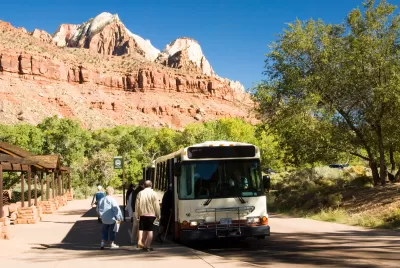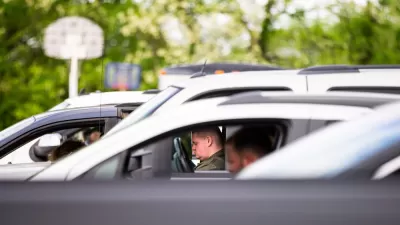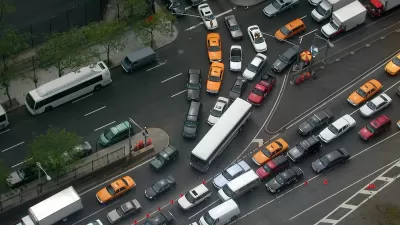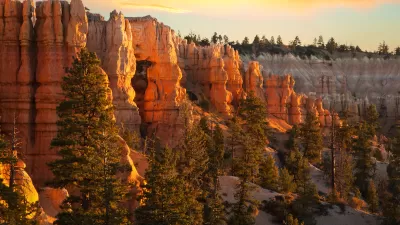Too often, national parks and other recreational spaces in the United States are difficult or impossible to access without a car. Some parks are working to change that.

In a piece in Millennial American Dream republished in Streetsblog USA, Michael Moore describes how Rocky Mountain National Park and Glacier National Park provide exemplary models for providing parks access to people who don’t own cars via bus shuttles.
By providing convenient transportation options, these parks reduce traffic congestion, minimize pollution, and make it easier for visitors to access hiking trails and attractions. Implementing similar shuttle services in popular US parks could significantly enhance accessibility and alleviate parking woes.
Moore also suggests making more in-park lodging, such as European-style hiking hostels, available to tourists to reduce the need to drive in and out. Additionally, parks can reduce economic barriers by providing affordable gear rentals and boosting connectivity to public transit. “Establishing reliable bus and train connections from major US cities and airports to lesser-known parks is crucial for achieving better access and dispersing visitor flow,” Moore writes.
Parks access shouldn’t be limited to people who own cars. “Implementing transit connections, alternative transportation options, in-park accommodations, small cabin hostels, refreshment options, gear rentals, and long-distance transit links can transform the way we experience nature in the US.”
FULL STORY: Making Hiking Accessible Without Cars

Alabama: Trump Terminates Settlements for Black Communities Harmed By Raw Sewage
Trump deemed the landmark civil rights agreement “illegal DEI and environmental justice policy.”

Planetizen Federal Action Tracker
A weekly monitor of how Trump’s orders and actions are impacting planners and planning in America.

How Atlanta Built 7,000 Housing Units in 3 Years
The city’s comprehensive, neighborhood-focused housing strategy focuses on identifying properties and land that can be repurposed for housing and encouraging development in underserved neighborhoods.

In Both Crashes and Crime, Public Transportation is Far Safer than Driving
Contrary to popular assumptions, public transportation has far lower crash and crime rates than automobile travel. For safer communities, improve and encourage transit travel.

Report: Zoning Reforms Should Complement Nashville’s Ambitious Transit Plan
Without reform, restrictive zoning codes will limit the impact of the city’s planned transit expansion and could exclude some of the residents who depend on transit the most.

Judge Orders Release of Frozen IRA, IIJA Funding
The decision is a victory for environmental groups who charged that freezing funds for critical infrastructure and disaster response programs caused “real and irreparable harm” to communities.
Urban Design for Planners 1: Software Tools
This six-course series explores essential urban design concepts using open source software and equips planners with the tools they need to participate fully in the urban design process.
Planning for Universal Design
Learn the tools for implementing Universal Design in planning regulations.
Caltrans
Smith Gee Studio
Institute for Housing and Urban Development Studies (IHS)
City of Grandview
Harvard GSD Executive Education
Toledo-Lucas County Plan Commissions
Salt Lake City
NYU Wagner Graduate School of Public Service





























